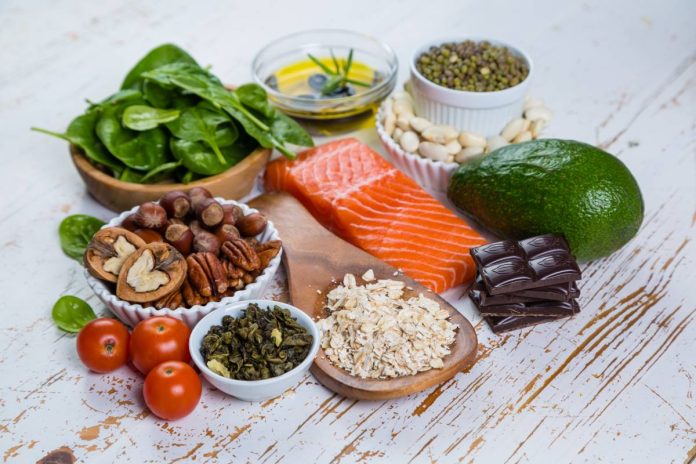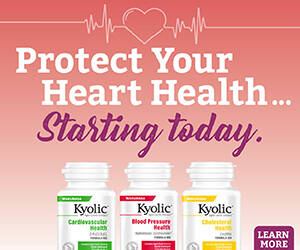
We are often reminded that high blood pressure (hypertension) is a silent disease, but there’s another disease that has no symptoms as well: high cholesterol. This isn’t news, but a few things about cholesterol may be new, including a better way to measure cholesterol and some natural ways to help prevent the disease typically associated with high cholesterol: heart disease.
First, however, let’s look at some basics.
What’s the story about cholesterol levels?
Most doctors will tell you that high total cholesterol and low-density lipoprotein (LDL) cholesterol levels significantly raise your risk of heart disease. To that end, individuals are urged to check their cholesterol levels regularly using the complete cholesterol test—a lipid panel or lipid profile—which measures cholesterol and triglyceride levels in the blood.
The American Heart Association, for example, recommends that people age 20 and older be checked every four to six years if their risk is low. Those with total cholesterol levels greater than 200 mg/dL should be checked more frequently.
Read about 5 key nutrients for cardiovascular health
Are standard cholesterol tests really helpful?
The standard complete cholesterol test measures four types of fats in the bloodstream:
- Total cholesterol is the sum of all cholesterol in your blood. Healthy level: 125-200 mg/dL
- Low-density lipoprotein cholesterol (LDL-C), also known as “bad” cholesterol, is a measure of the amount of cholesterol found in LDL particles (LDL-P). Elevated levels of LDL-C cause the accumulation of plaques in your arteries or atherosclerosis. If the plaques rupture, they can result in a heart attack or stroke. Healthy LDL-C: <100 mg/dL
- High-density lipoprotein cholesterol (HDL-C), aka “good” cholesterol, helps transport LDL-C away from your arteries and thus helps with better blood flow. Healthy HDL-C: >45 mg/dL
- Triglycerides. This fat is formed when the body transforms calories it doesn’t use. The triglycerides are stored in fat cells, and high levels of triglycerides are associated with overweight/obesity, diabetes, and elevated blood glucose levels. Healthy level: <150 mg/dL
A problem with standard cholesterol testing is that it doesn’t go far enough, according to some experts, including Jonny Bowden, Ph.D., CNS, and author of The Great Cholesterol Myth. He recommends the NMR (nuclear magnetic resonance) particle test.
What is the NMR particle test?
The NMR particle test is an advanced lipid profile that provides information gathered in the standard test but then goes much deeper. The additional information gives you and your doctor a clearer idea of your cardiovascular disease risk and insulin resistance risk. Here is a breakdown of those additional features.
- Low-density lipoprotein particles, or LDL-P. These elements hang out in the blood for a long time, which allows them to break through artery walls and form plaque. The more LDL-P in the bloodstream, the greater the risk they will attach themselves to the arteries.
- Small LDL particle number (small LDL-P). The greater number of small LDL-P, the greater the risk of cardiovascular disease. The combination of LDL-P and small LDL-P levels gives individuals a much clearer picture of their cardiovascular disease risk.
- HDL particles (HDL-P). HDL transports bad cholesterol to the liver, therefore, the higher the HDL-P number, the greater your protection against cardiovascular disease.
Another benefit of the NMR test is that it provides information about a person’s risk of developing insulin resistance, which Dr. Bowden notes is a much better predictor of cardiovascular disease than cholesterol alone. That’s because the test measures LDL particle size. Small, dense LDL particles are closely associated with insulin resistance because the particles contribute to the formation of plaque and the risk of developing type 2 diabetes.
This leads to yet another factor the NMR test measures: the LP-IR, or the lipoprotein insulin resistance score. This score is the culmination of six lipoprotein particle numbers and sizes and their association with insulin resistance.
Protecting yourself against cardiovascular disease naturally
Three of the more powerful natural supplements to help ward off high cholesterol in particular and cardiovascular disease in general, are aged garlic extract, phytosterols, and omega-3 fatty acids. Use of such supplements, plus regular exercise, a healthy weight, stress management, and a nutritious diet (e.g., Mediterranean, DASH, vegetarian, and more) can be just what the doctor ordered!
Read about lowering cholesterol naturally
Aged garlic extract (AGE). Aged garlic extract has been shown to play a significant role in managing high cholesterol. Cholesterol is a fat with both beneficial and harmful qualities. In the former category, cholesterol is necessary for producing vitamin D, hormones, bile, and cell membranes. In the latter category, unhealthy levels of harmful types of cholesterol can ultimately lead to cardiovascular disease. Aged garlic extract can help.
In a review of 39 human studies, for example, the authors noted that AGE reduced total cholesterol levels by 17 mg/dL and LDL by 9 mg/dL among individuals with total cholesterol levels greater than 200 mg/dL. This is significant because an 8 percent reduction in total cholesterol levels is associated with a 38 percent reduction in the risk of experiencing coronary events at age 50.
In earlier research on both animals and humans, experts identified some of the reasons aged garlic extract has cholesterol-lowering effects. One factor is the ability of the extract to inhibit the synthesis of cholesterol in the liver by water-soluble sulfur compounds, including S-allylcysteine.
Much research also has shown that aged garlic extract can stop and even reverse the accumulation of plaque (cholesterol and other fats) in the arteries, which in turn can reduce the advancement of atherosclerosis, a condition in which blood flow is compromised because of damage to the arteries.
Phytosterols. Phytosterols are fats found in plants and are structurally similar to cholesterol. However, they don’t act like cholesterol and instead aid in stopping cholesterol absorption from the diet by fighting for space in the intestinal tract. This action, in turn reduces levels of bad cholesterol and thus supports cardiovascular health.
Although you can find phytosterols in all plant foods, they are most prominent in unrefined plant oils, such as olive, nut, and vegetables. Good dietary sources include nuts, seeds, whole grains, and legumes. Phytosterols are also available in supplement form.
Omega-3 fatty acids. These fatty acids—eicosapentaenoic acid and docosahexaenoic acid- are primarily found in oily fish such as tuna, salmon, herring, and mackerel, as well as some seeds and nuts. Regarding cardiovascular health, the use of omega-3s has been shown to significantly reduce triglyceride levels and provide a slight improvement in HDL cholesterol. Omega-3s are often combined with aged garlic extract to provide better protection against cardiovascular disease.
Bottom line
The standard cholesterol test doesn’t provide enough reliable information to help predict your risk for cardiovascular disease. A combination of results of the NMR particle test, cholesterol-managing supplements, and a healthy lifestyle (diet, exercise, stress management) is a promising recipe for reducing cardiovascular disease risk.
[Editor's Note: Wakunaga, the makers of Kyolic Aged Garlic supplements, have a variety of to support cardiovascular health and your cholesterol.]








